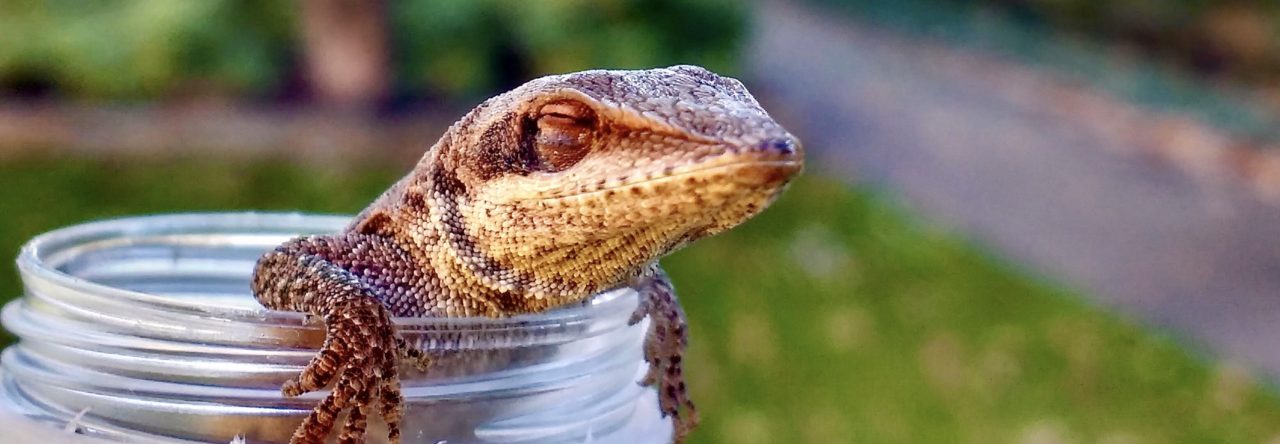 Manuel Leal and Brian Powell have just published a paper in Biology Letters demonstrating that lizards are smart. Before getting to the details, though—here’s the important point: check out the videos! They’re pretty amazing (here, scroll down and click on the videos).
Manuel Leal and Brian Powell have just published a paper in Biology Letters demonstrating that lizards are smart. Before getting to the details, though—here’s the important point: check out the videos! They’re pretty amazing (here, scroll down and click on the videos).
Here’s the story: working with the Puerto Rican trunk-crown anole, A. evermanni, Leal and Powell presented lizards with an experimental apparatus in their home cages with two wells, in one of which was a dead phoenix worm (whatever that is). Next to the well with the worm was a little round disc similar to a poker chip. The lizards learned to go to the well and find and eat the worms. Then the experimenters placed the chip halfway over the well. Again, no problem.
Now comes the cool part. The experimenters completely covered the well containing the worm with a blue chip. Remember, these are Anolis lizards that usually find their prey by looking for movement—they don’t go digging around in the underbrush. Still, four out of the six lizards figured out how to get the mealworm: two of them bit the chip and removed it from covering the well, while two others figured out how to use their snouts as a lever to flip the chip off the well. This is pure problem-solving, and it uses novel behaviors, rather than simply transferring a natural behavior to a new context! And the two lizards that failed to get the worm came up with their own solution, hitting the center of the chip with their snout—but this was ineffective in dislodging the chip.
Once the lizards had learned to find the worm under the chip, the experimenters then conducted a discrimination trial, giving the choice of a blue chip and a yellow chip. Without error, the lizards always went to the blue chip; subsequently, they were presented a blue chip versus a blue-and-yellow chip, and they still had no problem.
Pretty amazing for a lizard, if you ask me, but it gets even better.

